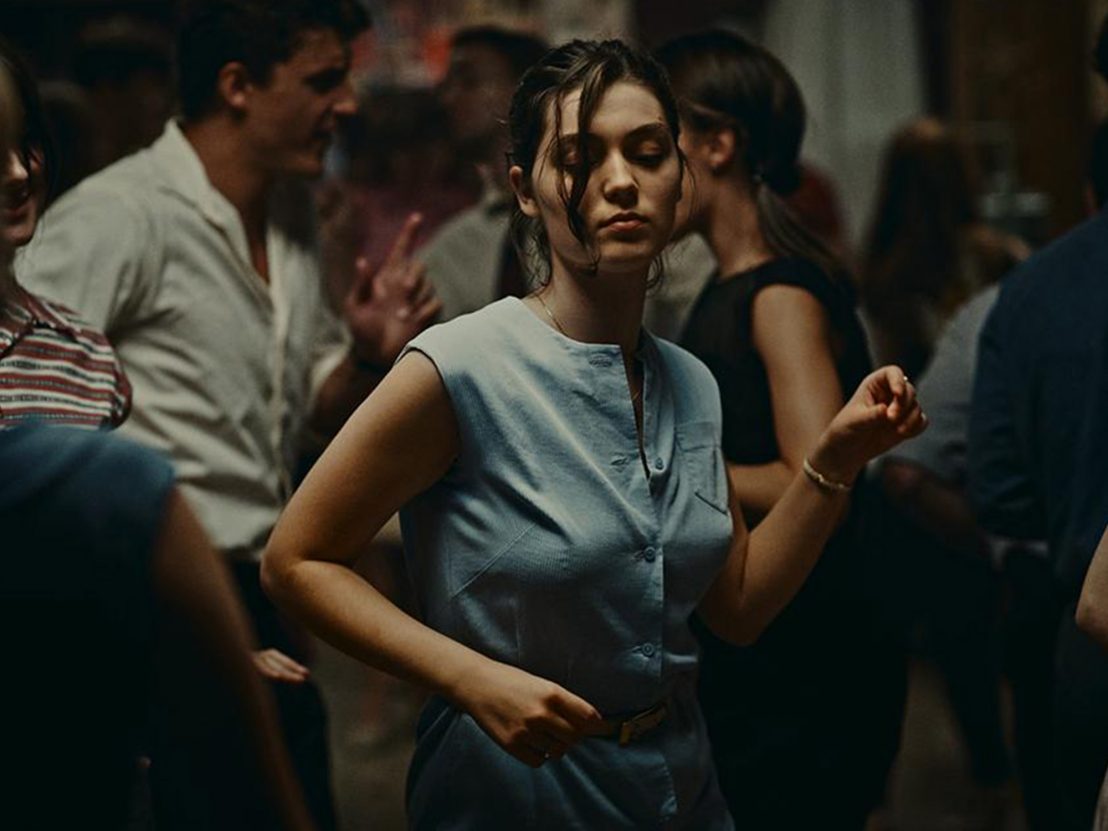
Audrey Divan’s lacerating and necessary drama follows a young student seeking a clandestine abortion in 1960s France.
There is no moral equivalence between a pro-choice and pro-life stance. It’s sanity versus insanity. So says Audrey Divan’s consummately hard-hitting drama L’Événement, which is based on a memoir by the French writer Annie Ernaux. This is not a politically didactic film, nor a lapel-shaking polemic, but a film whose obligation towards fine dramatic authenticity succeeds in convincing that this is the correct way of thinking, and any alternatives are incorrect.
It is, in that sense, a vital, sobering work in the light of current freedoms being torn away from women across the world by fundamentalist lawmakers and dingbat zealots, and one hopes it will travel far and wide – because of and not despite its unsentimental depiction of a teenage woman seeking a backstreet abortion in early 1960s France when the procedure was illegal.
Anamaria Vartolomei gives what needs to be given (which is an extraordinary amount) in the role of Anne, a peppy, flirtatious young literature student who dreams of becoming a teacher. But after a throwaway summertime fling, she finds herself with stomach cramps and bouts of vomiting – her instant reaction is to see her dreams slipping away.
The local GP confirms it, and when she comes out straight away and asks him to do something about it, he blankly refuses, despite his more liberally-inclined personal beliefs. This is a climate where the prospect of abortion, which comes tethered to a prison sentence, strikes more fear in the heart than a pregnancy that could eradicate a woman’s right to take her life in the direction she choses.
In L’Événement, there is no case for the other side. There is no one attempting to convince Anne that her actions are a folly and that, in fact, this could lead to a bright future. Because Divan is violently committed to the notion of personal liberty and that women should have the right to engineer their own destinies. Anne refers to her condition as “the disease that only women get,” and she is not for a single moment swayed into thinking that her search for a “cure” is an horrendous criminal act.
Moving scenes at home with her restaurant-owner mother (Sandrine Bonnaire) enforce the idea that women naturally want the best for their children, and in most cases want them to have opportunities which they may have not been afforded. Anne cherishes this view of family, and knows that if she were to give birth now, she would not be able continue the legacy and would likely resent the child for ruining her life.
It’s an unsparing and graphic film which places the viewer in a headlock while presenting the realities that a person with an unwanted foetus in their womb faces without proper reproductive care. The men in the film are mostly ineffectual, though Divan never presents them as uncaring monsters, more that they descend into a state of utter bafflement and have no idea how to accept – let alone deal with – Anne’s predicament.
The weeks since conception tick on as chilling intertitles, and Anne embraces ever more drastic measures as she knows that her window of opportunity is narrowing. Though the film states its position with unwavering clarity, and even though it is designed as a locus for debate, the question that most will need to answer is: should the price of freedom really be this high? It’s hard to think of a film more necessary in the current moment.
Published 6 Sep 2021

Mexican cine-sadist Michel Franco returns with another cravenly bleak drama about life as a pageant of eternal suffering.

This unique journey to the centre of the earth is a stunning highlight of the 2021 Venice Film Festival.

Pedro Almodóvar delivers yet another major late work, with Penélope Cruz on career-best form.